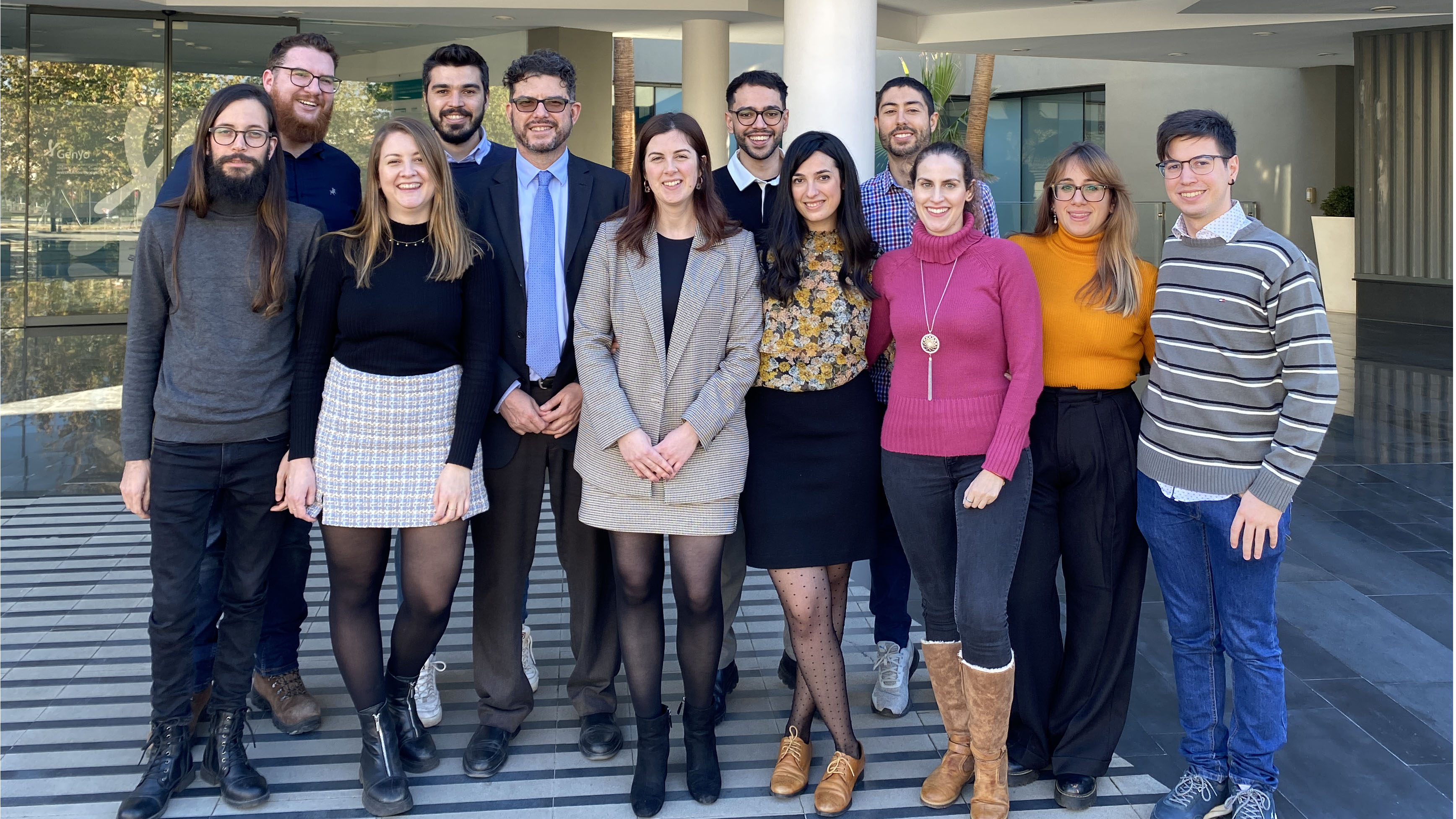Otology & Neurotology- Genomics of vestibular disorders
Dr. Jose Antonio Lopez-Escamez

Group leader
Jose Antonio Lopez-Escamez
Senior Researcher
Juan Manuel Espinosa Sánchez
Technicians
Francisca Cara Lupiáñez
Postdoctorals
María del Mar Bonillo
Álvaro Gallego Martínez
Lidia Frejo Navarro
Pablo Roman-Naranjo Varela
Patricia Pérez Carpena
Marta Martínez Martínez
PHD Students
Marisa Flook Pereira
Alba Escalera Balsera
Paula Robles Bolívar
Alberto Parra Pérez
María del Carmen Moleón
Eliseba de Haro
Juan Martín Lagos
Alberto Bernal Robledano
Scientific interest areas
Research areas
Technology platforms
Funding
Research group patents
| Application Number: | P201930255 | Priority date: | 20/03/2019 | ||
| Title: | Panel de Citoquinas/Quimiocinas para el diagnostico diferencial en el Síndrome Vestibular Episódico | ||||
| Authors: | Lopez-Escamez JA, Flook M, Frejo L | ||||
| Applicant: | Servicio Andaluz de Salud | ||||
| Application Number: | P201630745 | Priority date: | 03/06/2016 | ||
| Title: |
Citoquinas proinflamatorias como marcador diagnóstico en el síndrome vestibular episódico |
||||
| Authors: | Lopez-Escamez JA, Frejo Navarro L, Espinosa-Sanchez Juan Manuel, Requena T. | ||||
| Applicant: | Servicio Andaluz de Salud | ||||
| Application Number: | P201531458 | Priority date: | 09/10/2015 | ||
| Title: |
Uso de variantes alélicas en la región 6p21.33 para el diagnóstico y pronóstico en la Enfermedad de Meniere |
||||
| Authors: | Lopez-Escamez JA, Cabrera S, Alarcon-Riquelme ME, Requena T. | ||||
| Applicant: | Fundación Progreso y Salud /Servicio Andaluz de Salud | ||||
| Application Number: | P201430716 | Priority date: | 16/05/2014 | ||
| Title: |
Uso de polimorfismos (SNPs) del gen NFKB1 para el pronóstico auditivo en la enfermedad de Meniere |
||||
| Authors: | Lopez-Escamez JA, Cabrera S, Sanchez E, , Alarcon-Riquelme ME, Espinosa-Sanchez JM, Requena T. | ||||
| Applicant: | Fundación Progreso y Salud /Servicio Andaluz de Salud | ||||
| Application Number: | p2011132013 | Priority date: | 14/12/2011 | ||
| Title: |
Método de obtención de datos útiles para el diagnóstico y pronóstico de la hipoacusia neurosensorial |
||||
| Authors: | Lopez-Escamez JA, Lopez-Nevot MA, Gazquez I, Moreno A, Aran I, Soto-Varela A, Santos S, Perez-Garrigues H, Lopez-Nevot A, Requena T. | ||||
| Applicant: | Fundación Progreso y Salud /Agencia Publica Hospital de Poniente | ||||
Additional information
Doctoral theses supervised
Scientific Societies:
Research Networks:
Continued scientific collaborations with:
Organismos de evaluación en los que participo:
Editorial Board Membership:
Reviewer of the following Journals:
Selected publications
 Loading publications...
Loading publications... Intranet
Intranet